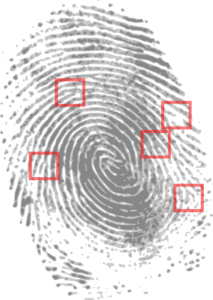When a Mount Holly criminal defense attorney and a prosecutor are presenting their cases to a jury, they offer evidence to support their arguments. You might know what the word evidence means, but in a criminal trial, there are many rules surrounding evidence, including what is and isn’t allowed to be presented at trial.
What Is Criminal Evidence?
Evidence can be in the form of verbal testimony, such as:
- Lay witnesses and expert witnesses
- Text of documents
- Recorded conversations
Evidence can also be physical, for example:
- Weapons
- Clothing
- Photographs or video
- Drugs or drug paraphernalia
- Scientific/forensic evidence
- Footprints or other types of tracks
All of the prosecutor’s evidence will attempt to prove that the defendant is guilty of the crime for which he is on trial. On the contrary, any evidence offered by a Mount Holly criminal defense attorney will attempt to disprove the prosecutor’s claims. Remember, the prosecutor has the burden of proof. The defendant does not have to prove his or her innocence; they only have to chip away at the prosecution’s arguments in order to secure a finding of Not Guilty.
Some evidence is direct (proving a particular fact without the need to make an inference) and some is circumstantial (relying on inferences or reasoning to support a theory). Regardless of whether evidence is direct or circumstantial, it must be relevant in order to be deemed admissible in court. Relevance is a fairly easy standard to meet: evidence having a tendency in reason to prove or disprove any fact of consequence to the determination of the action. However, even if relevant, if there is a high likelihood that the evidence will cause unfair prejudice, confuse the jury, waste time, or mislead the jury, it will not be admissible.
Some of the types of evidence that is inadmissible in court include:
- Character Evidence. A prosecutor is not permitted to use evidence of the defendant’s personality to argue that he committed the crime. (Exception: If the Mount Holly criminal defense attorney brings it up first, it is then fair game for the prosecutor.)
- Out of Court Testimony. The US Constitution gives a defendant the right to confront his accuser.
- Plea Bargaining Statements. Sometimes, the prosecution and the defense attempt to reach a plea deal prior to the conclusion of a trial. However, if no deal is successfully reached, the prosecutor is prohibited from using any of the defendant’s statements made during these discussions against him at the trial.
Need A Successful Mount Holly Criminal Defense Attorney?
When you need a qualified and experience criminal defense attorney in Mount Holly to represent you in a criminal matter, consider Mark Catanzaro. His experience, skill, and ability to develop winning defense strategies will provide you with the best chance at favorable results.
Don’t wait – call today!
